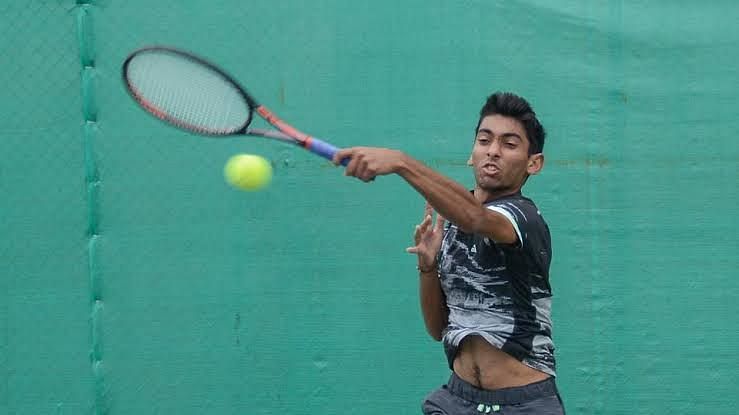Harbouring dreams of becoming a successful tennis player whilst hailing from the Indian subcontinent can be rather unfulfilling, considering the country's lack of infrastructure and support system for its budding talents.
Players like Yuki Bhambri, Sumit Nagal and Prajnesh Gunneswaran have often cited the lack of infrastructure and financial support as the main reasons for India's failure to produce top-quality singles players over the last few decades and that's a sentiment echoed by one of the country's top juniors, Dev Javia.
In an exclusive interaction with Sportskeeda on the sidelines of the 2020 Australian Open, Javia spoke about a host of issues, including the struggles faced by developing players in the country. While the 17-year-old admitted that things have been getting better of late, he also conceded that there is a long way to go until they can compete with the rest of the world.
"The lack of Infrastructure, proper coaches, fitness trainers and physios are the main problems plaguing Indian tennis at the moment. It’s tough but the situation is getting better so I'm happy with respect to that."
"For the newer players, it’s going to be a lot easier. It was tough for Prajnesh and Sumit and me as well right now but it's getting better. We have to find places outside India to train because you can’t get the same intensity in India."
Despite the numerous obstacles faced by Javia growing up, he's managed to carve out some success on the junior tour, winning titles on the Road to Wimbledon and even earning the chance to take in the atmosphere surrounding the hallowed grounds of Wimbledon's Center Court.
"The experience [going to Wimbledon] was great, you get to see everything, including Centre Court, which was unreal."
Javia has continued to develop his game over the past couple of seasons and got his first taste of a Grand Slam this year in Melbourne where he featured in both the junior singles and doubles competitions.
Despite crashing out in the opening round of both events, Javia refused to view the experience as anything but positive, whilst admitting that nerves played a major role in his twin defeats.
"It was not the results I wanted, but it was my first Slam and I have to just look at the positives. I couldn't control my nerves. I was nervous but also extremely excited and I made a lot of silly errors in my singles match. At this level you just cannot do that."
"There are over 200 people watching at such events and you have to control your nerves. At other tournaments, there is no one watching. When I see opportunities such as these I get excited but I need to control that and calm down a little. However, I did many good things the whole week and I’m happy with that."
"Before coming here, I didn't know what to expect, I felt this was going to be tough playing against the best players in the world. After coming here, I now feel I can believe in myself and trust my abilities. I feel I belong at this level. I've got three more Slams left this year and I believe I will do well in those."
Often, the lack of results on the junior circuit can force players to turn to doubles in an attempt to forge a successful career for themselves.
Javia is no different in that regard but confirmed that his main aim is to do well on the singles circuit.
"Of course singles is my main aim. Doubles I just play for fun, just to improve my mood in case I lose my singles match. But the main priority is definitely singles and that will be the case going forward as well."
Hailing from a small village in Gujarat, Javia also recounted his first experiences with a racquet in his hand.
"My mom’s a doctor and in the evenings I used to sit in her clinic doing nothing. There were tennis camps nearby and she enrolled me in them. I took to tennis almost immediately and the rest is history."
Javia has risen through the ranks quite rapidly in the last few years, but he believes there is a lot more he can work on in the months to come.
Having crashed out in the first round of his maiden junior Slam, the youngster feels he needs to improve on the physical and mental aspect of his game in order to ascend to the next level and compete with the best juniors around the world.
"My main goal at the moment is to get bigger and stronger. I can compete at this level but I need to get much stronger physically and mentally."

